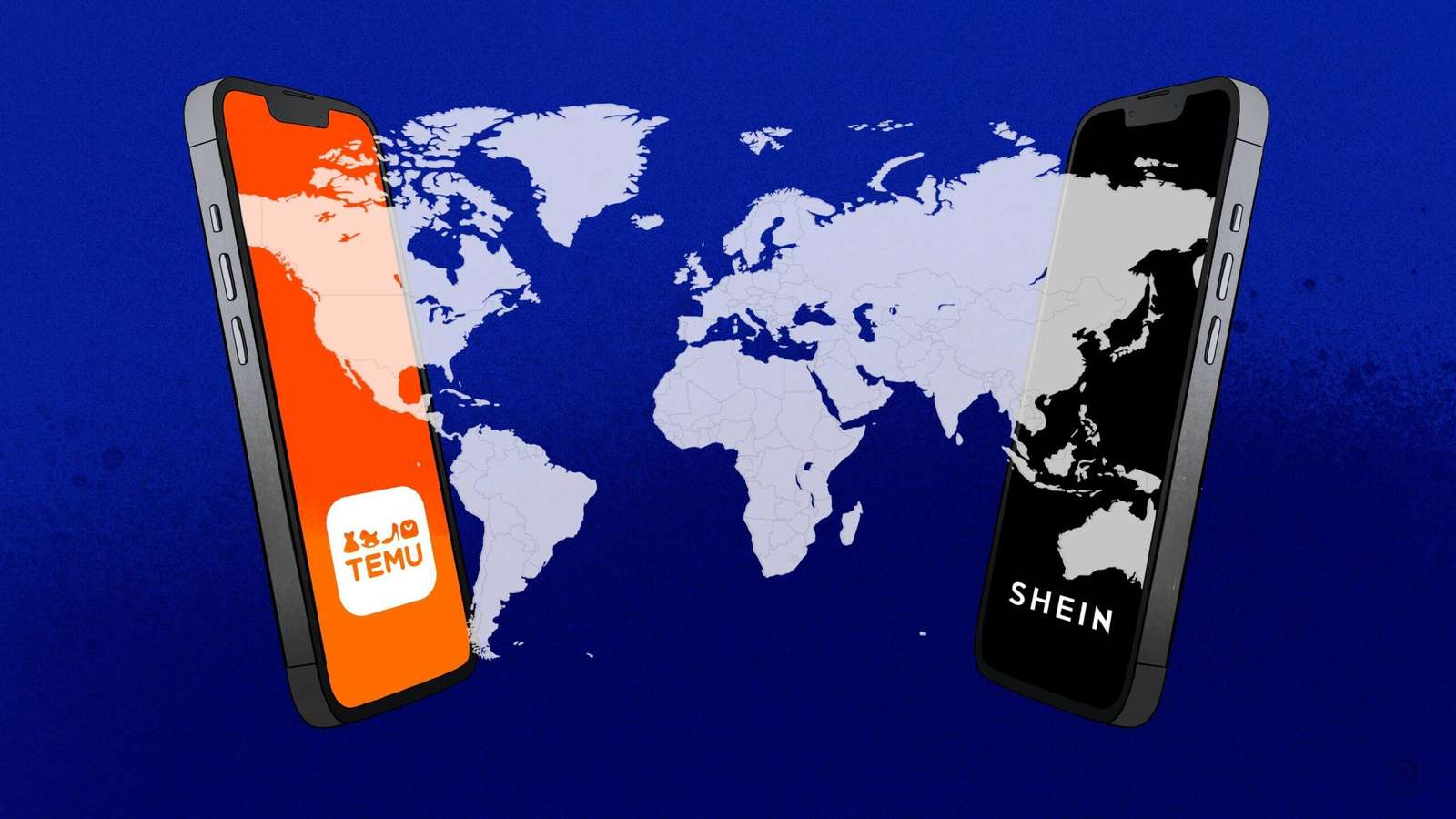The European Union is intensifying its efforts to curb the influx of potentially hazardous and illicit goods sold by popular online retail platforms, particularly Chinese giants Shein and Temu. EU Justice Commissioner Michael McGrath has voiced profound alarm over the "shocking" toxicity and dangers discovered in some of these products, vowing a rigorous crackdown to safeguard European consumers and ensure fair competition for domestic businesses.
The sheer volume of online imports is staggering, with an estimated 12 million low-value parcels entering the EU daily from outside the bloc. This equates to approximately 4.6 billion consignments under €150 for 2024, a dramatic doubling from 2023 and triple the figure from 2022. Notably, a significant 91% of these low-value e-commerce shipments originated from China. This explosive growth, largely fueled by platforms like Temu and Shein, has placed immense strain on national authorities' ability to effectively monitor and regulate the flow of goods.
An ongoing, confidential "secret shopper" operation across the EU is expected to provide further compelling evidence supporting existing concerns that some Chinese online retailers are systematically circumventing EU safety and consumer protection laws. Alarming examples already brought to light include baby soothers with easily detachable beads, posing a severe choking hazard due to the absence of regulation-sized air holes. Other dangerous products identified are children's raincoats containing toxic chemicals, sunglasses offering no UV filter protection, and children's shorts with excessively long drawstrings, creating a trip hazard. Of particular concern are cosmetics found to contain butylphenyl methylpropional (Lillal), a chemical banned in the EU since 2022 due to its potential impact on fertility and fetal development.
"I am shocked by it, and I think we have a duty to protect European consumers," stated Commissioner McGrath, underscoring the urgency of the situation. The EU's rapid alert system for dangerous non-food products, Safety Gate, recorded a record high of 4,137 alerts in 2024, with over a third related to cosmetics, highlighting a persistent pattern of dangerous products entering the market, predominantly from outside the EU.
Beyond direct safety risks, Commissioner McGrath also stressed the detrimental impact these platforms have on local businesses through what he terms "unfair competition." European businesses incur significant costs to comply with EU requirements and, he argues, should not be at a disadvantage against those who do not.
The EU is actively exploring several significant measures. One prominent consideration is the abolition of the current €150 duty-free threshold for goods entering the bloc, potentially coupled with a handling fee for each package. This would not only deter low-value purchases but also help fund enhanced customs investigations. This move echoes recent actions in the US, where President Donald Trump signed an executive order on April 2, 2025, to eliminate the $800 duty-free threshold for low-value imports from China and Hong Kong, subjecting them to applicable duties, with postal items facing rates of 30% or a minimum of $25 per item (increasing to $50 after June 1, 2025). The creation of an EU-wide customs authority is also under consideration to more effectively manage the sheer volume of imports and ensure compliance.
In response to the mounting scrutiny, Shein has publicly stated its commitment to investing $15 million in 2025 towards compliance and safety initiatives, including a target of 2.5 million product and safety quality tests. The company also reported expanding its partnerships with 15 internationally-recognized testing agencies and claims to have removed 500 vendors since launching its marketplace.
Updated Regulatory Landscape and Statistics
The EU's legislative framework is rapidly adapting to address the complexities of online marketplaces. The Digital Services Act (DSA), effective since February 17, 2024, significantly increases obligations on online marketplaces to ensure product safety and legality. Under the DSA, marketplaces are now more accountable for the traders they host, required to take swift action against illegal content, and must inform affected consumers if an illegal product was sold. They are also forbidden from using misleading design and can face fines of up to 6% of their global annual turnover for breaches.
Furthermore, the General Product Safety Regulation (GPSR), applicable since December 13, 2024, directly applies in Member States. It reinforces product safety, establishes clear obligations for economic operators and online marketplaces, and grants authorities greater power to inspect products and compel their removal if non-compliant.
According to the 2025 Consumer Conditions Scoreboard, while e-commerce continues to grow (77% of EU internet users bought online in 2024), online shoppers are over 60% more likely to experience problems with their purchases compared to offline shoppers. The scoreboard also reveals that 93% of online shoppers worry about online targeted advertising, and 45% of consumers encountered online scams in the past year. Despite these concerns, 68% of EU consumers express confidence in the safety of products they buy, highlighting a potential disconnect with the documented risks.
The EU's commitment to chemical safety is further evidenced by the Chemicals Strategy for Sustainability and the upcoming PFAS ("forever chemicals") restriction. Starting in October 2026, the use of specific PFAS in certain consumer products will be gradually phased out, with a complete ban on PFAS in any textile product proposed by January 1, 2030. These updated regulations and ongoing enforcement efforts underscore the EU's determination to tackle the multifaceted challenges posed by the online marketplace.








.svg)

.jpg)
.jpg)